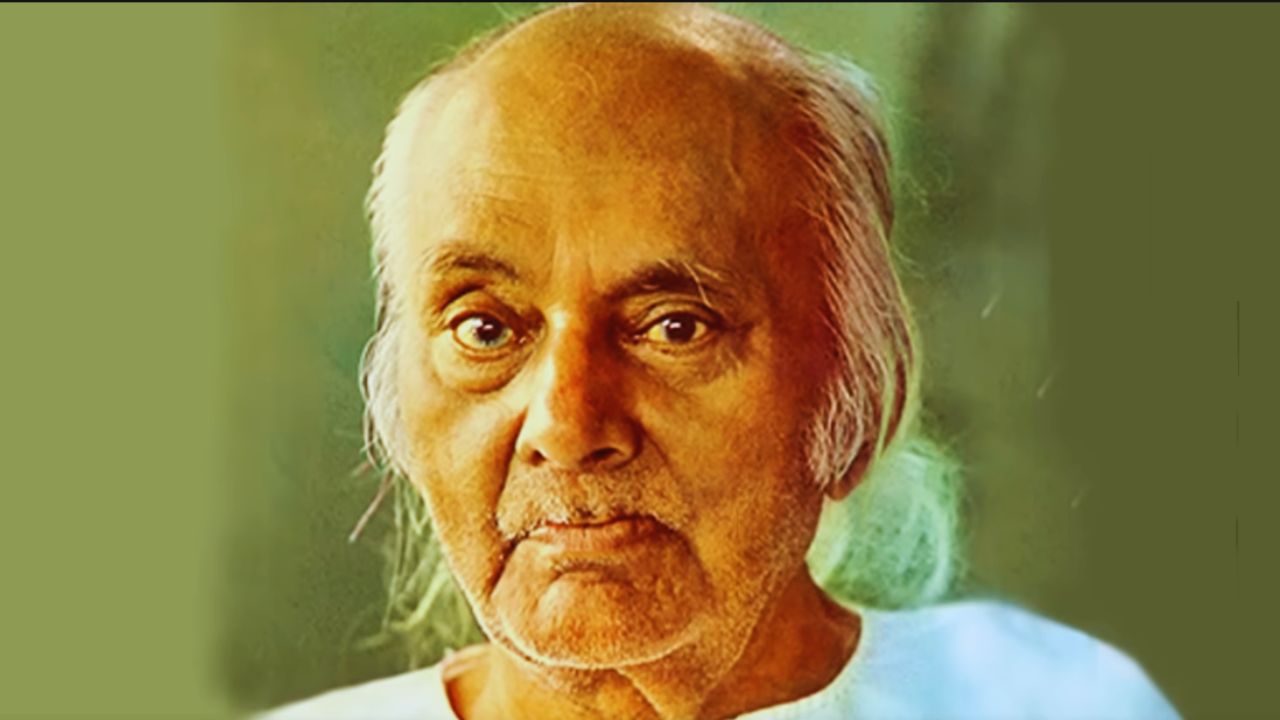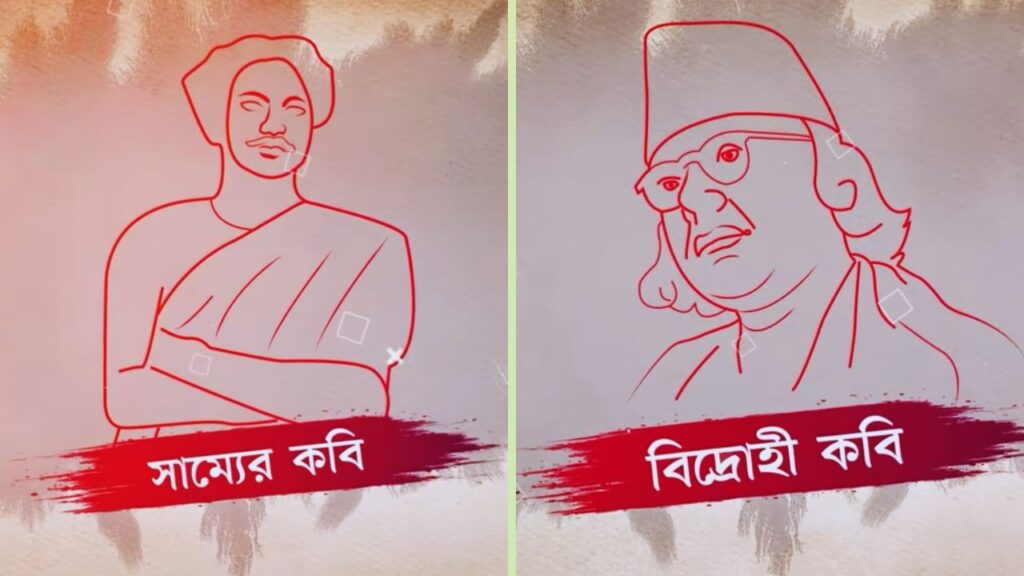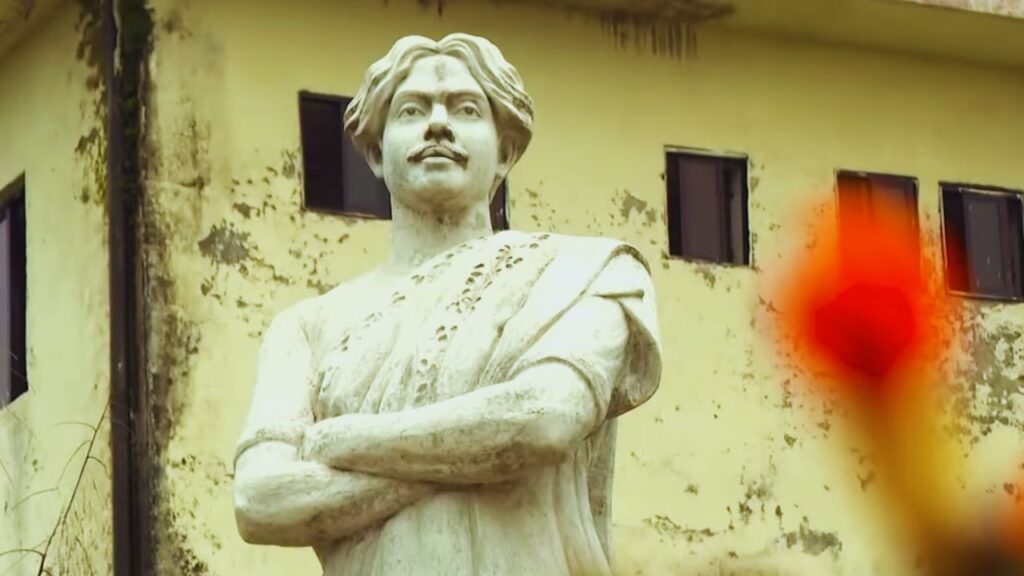The entire nation is paying homage to the legendary Kazi Nazrul Islam on his 126th birth anniversary, observed today, May 24, 2025, with an unprecedented nationwide celebration. This year’s commemoration holds historical significance as it marks the first state-recognised observance following the formal gazette notification on January 2, 2025, which officially confirmed Nazrul as the National Poet of Bangladesh.
Although the title had been widely acknowledged since May 24, 1972—the day Nazrul arrived in independent Bangladesh at the invitation of the government—the interim government’s official declaration has institutionalized his place in national identity and cultural history.
The Rebel Poet: A Life of Resistance, Creativity, and Courage
Kazi Nazrul Islam, born on May 24, 1899 (11th Jaishtha, 1306 Bangla year) in Churulia, a modest village in West Bengal’s Bardhaman district, rose from humble beginnings to become a towering figure in Bengali literature, music, and political activism.
Dubbed the “Bidrohi Kobi” (Rebel Poet), Nazrul used his pen and voice to challenge British colonial rule, religious bigotry, and social inequality. He was a man of many talents: poet, journalist, lyricist, composer, dramatist, soldier, and revolutionary thinker. His activism led to imprisonment when his powerful poem “Anandamoyeer Agomoney” was deemed seditious by British authorities, underscoring the potency of his words in awakening the masses.
Nazrul’s legacy includes over 3,000 songs (known as Nazrul Geeti), numerous volumes of poetry, short stories, essays, and musical compositions that remain integral to Bangladesh’s cultural fabric.
Nationwide Celebrations Led by Cultural Institutions and Government
To honor the poet’s enduring influence, the Ministry of Cultural Affairs, in collaboration with Bangladesh Shilpakala Academy (BSA) and local administrations, has organized a wide array of programmes across the country. These events are designed not only to pay tribute but also to connect Nazrul’s revolutionary ideals with the spirit of contemporary resistance and cultural awakening.
Three-Day National Event in Cumilla
The national-level celebration has been inaugurated in Cumilla, a city of historical significance in Nazrul’s life. The three-day event, beginning on May 25, is themed “Legacy of Kazi Nazrul in the 2024 People’s Uprising,” symbolizing the relevance of Nazrul’s messages in today’s sociopolitical landscape.
The opening ceremony is being held at the Cumilla District Shilpakala Academy, with Cultural Affairs Adviser Mostofa Sarwar Farooki as the chief guest. Md Mofidur Rahman, Secretary of the Ministry of Cultural Affairs, is presiding over the event.
Distinguished personalities including Md Latiful Islam Shibli, Executive Director of the Kazi Nazrul Islam Institute, and Khilkhil Kazi, the poet’s granddaughter and Chairperson of the Trustee Board, are attending as special guests. The keynote speech will be delivered by renowned educationist Professor Salimullah Khan, while Cumilla Deputy Commissioner Md Amirul Kaisar is delivering the welcome address.
Highlight: Nazrul Award Ceremony
As part of the celebration, the Nazrul Award for both 2023 and 2024 is being conferred upon individuals who have made significant contributions to the study, performance, and preservation of Nazrul’s works. The awards aim to keep his intellectual and cultural heritage alive for future generations.
Cultural Segment: “Chetona O Jagorone Nazrul”
The formal ceremonies will be followed by an evocative cultural performance titled “Chetona O Jagorone Nazrul” (Nazrul in Spirit and Awakening), curated and presented by the Bangladesh Shilpakala Academy. This production blends music, dance, and dramatized recitations of Nazrul’s work to capture the essence of his revolutionary spirit.
Parallel Celebration in Dhaka
On May 26, a corresponding event will be held in Dhaka at the BSA National Theatre Hall, beginning at 6:30 PM. The event is expected to bring together poets, artists, government officials, and members of the public in a shared cultural experience, reinforcing Nazrul’s vision of unity and resistance through the arts.
Bangla Academy Recognizes Nazrul Scholars and Artists
In a separate tribute, the Bangla Academy has announced that researcher Anwarul Haque and renowned Nazrul singer Shabnam Mushtari will be honored with the Nazrul Award 2024 for their enduring contributions to research and music rooted in Nazrul’s legacy.
The award will be formally presented during a special commemorative session hosted by Bangla Academy on Sunday, May 26.
Chhayanaut Hosts Annual Nazrul Utshab
Chhayanaut, one of the country’s most respected cultural institutions, is holding its traditional Nazrul Utshab (Nazrul Festival) from May 25 to 26 at its auditorium in Dhanmondi, Dhaka.
The festival will showcase live performances of Nazrul’s poetry, songs, and dramatic works, featuring Chhayanaut artists alongside invited performers. The program aims to engage audiences of all ages and backgrounds in the richness of Nazrul’s creative legacy.
Grand Nazrul Concert on May 31
Capping the series of events, the Kabi Nazrul Institute is organizing a massive public concert on May 31, to be held at Manik Mia Avenue, Dhaka. The event will mark the release of a newly remastered music album featuring 10 of Nazrul’s most iconic songs, reinterpreted by some of Bangladesh’s top contemporary bands, including:
- Warfaze
- Souls
- Ark
- Shironamhin
- Black
The event will begin at 5 PM and is free for all. Alongside the band performances, there will be live poetry recitations, dramatic presentations, and collaborative performances that blend modern sounds with Nazrul’s timeless messages. Adviser Mostofa Sarwar Farooki is also expected to inaugurate the concert.
A Legacy That Continues to Resonate
Kazi Nazrul Islam’s career, though relatively short—spanning only 22 years due to early illness—was intensely productive and transformative. His works were deeply rooted in themes of equality, humanism, secularism, and patriotism, which continue to shape the identity and conscience of Bangladesh.
He served briefly in the British Indian Army in 1917, which exposed him to global anti-colonial struggles and broadened his worldview. Upon returning, he immersed himself in journalism and literature, launching the revolutionary weekly ‘Dhumketu’ in 1922.
In addition to his literary achievements, Nazrul made significant contributions to film and theater, writing, directing, composing, and even acting in early Bengali cinema, including the film ‘Dhruva’.
Kazi Nazrul Islam passed away on August 29, 1976, at the then PG Hospital (now Bangabandhu Sheikh Mujib Medical University). According to his own wishes, he was buried beside the central mosque of the University of Dhaka, a site now visited by thousands annually to pay respect to the poet of the people.





































